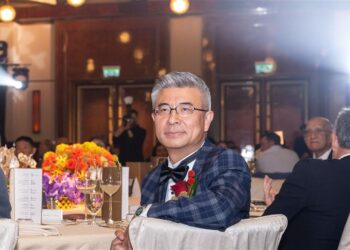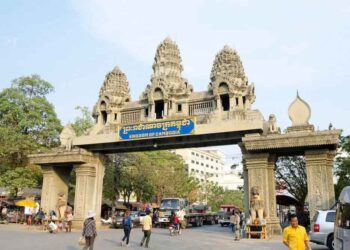Sands China is stepping up its scrutiny of junket operators.
Bloomberg reports that the Macau subsidiary of US-based Las Vegas Sands is looking to strengthen its safeguards against money laundering and other crimes and is asking the junkets—the middlemen who provide the high rollers who account for two-thirds of gambling revenues in the booming Chinese casino enclave—to provide more information about their activities.
Citing a source who asked not to be named because the moves aren’t public, Bloomberg said the changes are likely to reduce the number of junket operators working with Sands, which emerged in the first quarter as the largest operator by gaming revenue in a market that generated US$45 billion last year.
As a US-based company LVS is under increasing pressure to meet reporting requirements set forth by federal and state regulators and prosecutors to prevent money laundering and other financial wrongdoing.
LVS has acknowledging in filings that it is under investigation by the US Justice Department and the US Securities and Exchange Commission and in response has bulked up on staff to monitor players, employing former US Federal Bureau of Investigation agents, regulators and attorneys experienced in anti-money laundering law.
Last August, the company reached an agreement with the Justice Department to forfeit US$47 million in proceeds from a high-stakes gambler at its Las Vegas Strip casinos who was later linked to international drug trafficking.
The company has since said it no longer allows international transfers of funds by customers and limits the use of checks or money transfers from business accounts, according to Bloomberg, which said the company also restricts the amount of cash customers can withdraw from their casino accounts in a given day.
The Nevada Gaming Control Board is also boosting oversight of the Macau operations of its three licensees, sending teams more often to monitor Sands, MGM Resorts International and Wynn Resorts. All three control their Macau operations through subsidiaries whose shares are traded on the Hong Kong Stock Exchange.
Last month’s conviction in a Hong Kong court of businessman and junket investor Carson Yeung for money laundering has also cast a spotlight on the activities of the secretive world of VIP gambling in Macau, which relies on the junkets and their vast networks of agents to provide the credit necessary to circumvent China’s strict limits on currency exports and collect on it. Gambling debts are not legally enforceable in China.
The local government’s regulation of the sector is lax, according to the U.S.-China Economic Security Review Commission, a panel instituted by the US Congress. A congressional report released last October claimed that more than US$200 billion was laundered through Macau in the previous year.




































